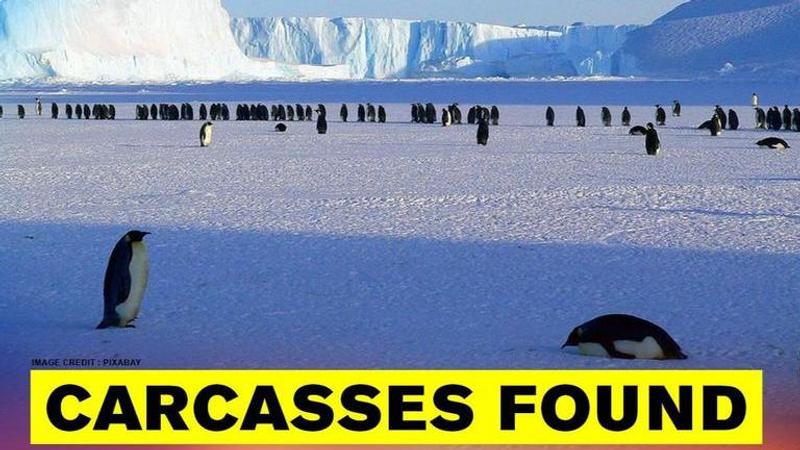Published 16:35 IST, October 1st 2020
Global Warming reveals carcasses of Adelie Penguins preserved in Antarctica
Scientists have come across a discovery claiming that global warming has resulted snow in Antarctica to melt revealing the carcasses of Adelie penguins.

Advertisement
Scientists have come across a puzzling new discovery claiming that global warming has resulted snow in parts of Antarctica to melt revealing the carcasses of Adélie penguins that have been covered under the ice for more than 5,000 years. According to the Daily Mail reports, Steven Emslie, a professor at the University of North Carolina, was studying Cape Irizar, situated south of the Drygalski Ice Tongue on the Scott Coast when he and his team were puzzled witnessing hundreds of preserved bones, feathers, and bodies.
'Mummies' of penguins found
Emslie reportedly said that they saw at least half a dozen 'mummies' of penguins with their bones and feathers on the surface. In addition the radiocarbon results showed that species lived 5,000 years ago with the last one ending about 800 years ago during the beginning of the Little Ice Age. Emslie along with his team of researchers collected some of the remains from the surface for further research and analysis. Emslie reportedly said that the fresh-looking remains were all of the Adélie penguins and added that it is very unusual for a place that has never been reported to have an active penguin colony.
During their course of investigation in that area, the team also came across pebble mounds which were the nesting sites for these penguins. Emslie explained that they excavated the mounds similar to that of an archaeologist to recover preserved tissues of penguin bone, feather, and eggshell, as well as parts of their prey like fish bones, otoliths, etc. The new study was published in Geology highlighting the work which shows at least three occupation periods of the cape by breeding penguins. As per the study, the Ross Sea (Antarctica) is one of the most productive marine ecosystems in the Southern Ocean and supports nearly one million breeding pairs of Adélie penguins (Pygoscelis adeliae) annually.
16:36 IST, October 1st 2020





